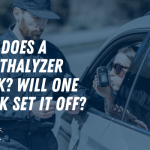In Florida, contingency fee agreements may be prohibited and restricted for certain types of cases, either due to legal or ethical constraints. While personal injury, medical malpractice, and wrongful death cases allow contingency fee agreements, Florida has rules regarding how these agreements should be disclosed and structured.
Florida Rule of Professional Conduct 4-1.5(f) outlines caps on contingency fees to ensure they are reasonable. This is especially the case for personal injury cases, ensuring you are receiving the care and help you are looking for.
Here are common types of cases that typically cannot have contingency fee agreements used:
Criminal Cases
Florida’s ethical rules prohibit attorneys from charging contingency fees for criminal defense cases, as a contingency fee could create a conflict of interest. This could incentivize unethical behavior, such as pressuring clients to accept plea deals.
Family Law Cases
In cases involving divorce proceedings, child custody disputes, or child support or alimony matters, The Florida Bar does not permit contingency fees as they are based on personal, non-economic interests, rather than a financial recovery.
Civil Cases with Public Policy Concerns
Disputes involving guardianship matters or probate and estate disputes, although exceptions may apply if they involve financial recovery, are not permitted to have a contingency agreement as it would be unethical and contrary to public policy.
Cases Prohibited by Contract or Law
In Florida, there are some statutes or contracts, such as certain government claims and cases that involve statutory fee-shifting provisions, that may prohibit contingency fee agreements.
Consult with Florida no win no fee civil lawyers, such as Abrahamson and Uiterwyk, if you are unsure of whether or not your specific case type qualifies for a contingency fee agreement. An attorney can provide tailored guidance based on the type of legal matter and the rules as applicable.
What do Most Lawyers Charge for a Contingency Fee?
Depending on the case, the lawyer’s experience, and the resolution of the case, the average contingency fee rate in Florida can range anywhere from 20-40%. Most only pay if you win lawyers will charge around 33% to 35% of the total amount won in your case. Your lawyer will go over the specifics, explaining the factors that go into the amount, ensuring you understand everything prior to your agreement.
There may be extra expenses and costs associated with your case. Some contingency agreements will specify whether the client is responsible for litigation costs regardless of the outcome. This can include court filing fees, expert witness fees, and deposition costs. Some attorneys may deduct these costs from the recovery in addition to their fees. There are some lawyers who use a sliding scale to determine their contingency percentage, including the stage of the case and the total amount recovered at the end of your case, resulting in lower percentages for higher recoveries.
Certain states, like Florida, have limitations on contingency fees for specific cases. Checking local laws and consulting with your attorney is always a good idea for precise guidelines of these limitations.
Questions to Ask Your Attorney About Contingency Fees
Asking questions is the best thing you can do to fully understand all the rules and regulations for your contingency fee, understand how it will work, and learn about any extra expenses that may not be covered. Here are 10 great questions to ask your attorney while meeting with them to learn more about how your contingency fee agreement will work and how it’ll impact your case:
- What costs and expenses am I responsible for? How are these costs paid?
- Will they be deducted from the recovery?
- Am I responsible for any costs if we don’t win the case?
- How will you communicate updates about the case and potential settlements?
- If the other party offers a settlement, how will that affect your fee?
- If the case settles quickly, will your fee still be the same percentage?
- How often do your contingency fee cases result in favorable outcomes?
- Do you have experience handling cases like mine?
- If another attorney or law firm is brought in to assist, how will their fees be handled?
- Are there any risks I should be aware of in signing this agreement?
Asking questions and clarifications is the best way to ensure you fully understand the contingency fee agreement and help you avoid any financial surprises, helping you feel confident and comfortable in your attorney, and giving you the peace of mind to trust your case with your attorney. Always review the written contingency fee agreement carefully before signing and ask questions and clarifications about anything that concerns or confuses you.
The Legal Support You Need Without Financial Burden
Contingency fee agreements can be a valuable tool for individuals seeking justice without the burden of upfront legal costs. However, in Florida, these agreements are prohibited or restricted for certain case types, such as criminal defense, family law disputes, and some civil cases involving public policy concerns.
If you believe a contingency fee arrangement may apply to your situation, consulting with an experienced no win, no fee attorney, such as Abrahamson & Uiterwyk, is crucial to understanding your options. Most lawyers charge a percentage of the recovery, typically between 20% and 40%, with additional costs potentially deducted. Asking questions about the fee structure and carefully reviewing the agreement ensures transparency and helps you feel confident in your legal representation. By taking these steps, you can pursue justice without unnecessary financial risk.



